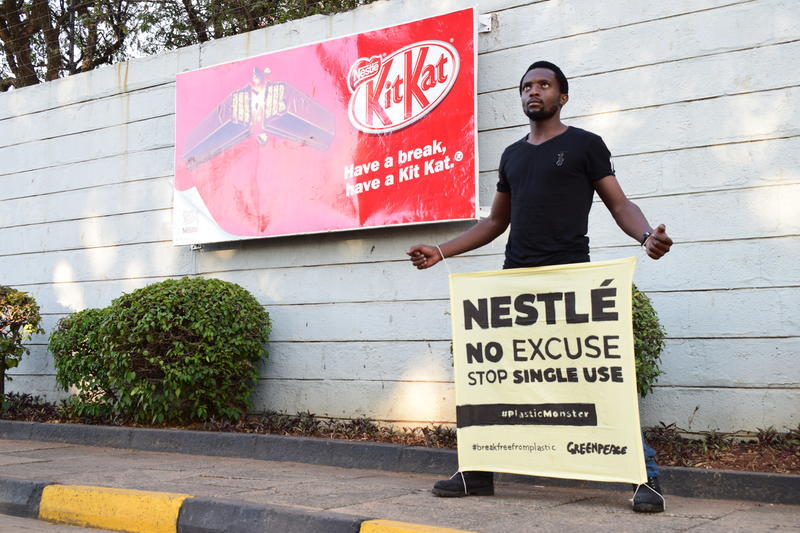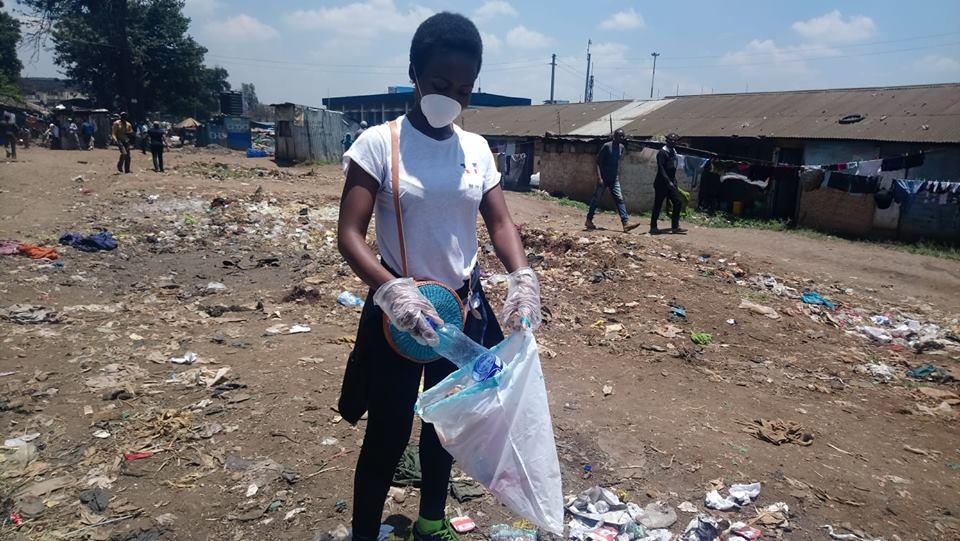
For almost over a year now, COVID-19 continues to wreak havoc upon communities in Africa. Leaders are now promising building back better from the COVID-19 crisis. However, the pandemic has exposed how unequal and unjust our systems are. It is evident that there is a need to shift from the current state of affairs and forge a new pathway. We can’t go back to approaches where false solutions are fronted and promoted.
Building back better may mean embracing new ways of doing things. One of the areas that needs to be given serious attention is the plastic industry. What does building back better mean in the waste management industry? One thing is clear, we can’t go back to a system where the leadership is not responsible for waste management. Where plastic industries continue to release millions of tonnes of plastic waste every year unchecked. Industry lobbyists continue to campaign to misinform consumers about single-use plastics being necessary to stop the spread of the virus. Their aim is to drive up the demand for plastic and fossil fuel. In the post COVID-19 recovery, there is a need to hold the plastic industry accountable for the damage caused by single-use plastics to the ecosystem and livelihoods.
It is time for industries to move away from polluting ways and institutions rewarding false solutions to finding real solutions to our challenges. Finding real solutions to challenges we are faced with such as plastic waste and climate crisis need to be a priority.
Building back better will mean we invest in systems where disposable plastics are eliminated and circular, reusable systems fronted by frontline communities are promoted, supported and financed. African governments must commit to promoting local zero waste solutions, create decent and just jobs for the people and ensure improved quality of life for Africans. These commitments need to move away from interventions that continue to perpetuate the current systemic failures.
There is a need to put an end to the existing injustices in the waste management system where those who are least responsible and marginalised communities suffer the consequences of the waste crisis. We need to go beyond commitments that avoid false solutions that are not sustainable in nature such as recycling. For instance, businesses need to move beyond interventions that seek to improve recycling, that encourage plastic production, and rather commit to massive phasing out of waste such as single-use plastics. We must move away from the throw-away culture and the corporate spread of the single-use products that are destroying our ecosystems.
With the COVID-19 pandemic, the need to build a resilient economy is more pressing than ever. We must go beyond the use and dump culture especially for the highly polluting plastics to a plastic-free future. Kenyan communities are already innovating reusable systems for instance the milk ATMs and reusable kiondos. However, if we are to have an impactful drive for innovative solutions to the plastic crisis, it should be a priority for African political leadership to create policies that support and provide a thriving environment for such community-led ventures. Africa has been at the forefront in the fight against the plastic pollution crisis, its leadership clearly has the power to enable change.
The COVID-19 pandemic saw the introduction of face masks to protect the world from the spread of the virus. Scientists have confirmed that reusable face masks are safe and secure to protect people from the COVID-19 virus as long as hygiene standards are adhered to. COVID-19 must not make Africa go back on its commitments of eliminating single-use plastics.
Regional and continental cooperation is needed in forging a strong fight against the polluting single-use plastics – particularly since our existing efforts are under threat, as demonstrated in the on-going US Free Trade Agreement debacle. African governments need to increase their ambitions in ensuring a plastic-free future. Frontline communities that are most affected by the plastic pollution crisis need to be prioritised in plans, strategies, policies and investments for plastic-free programmes. As the continent recovers from the challenges presented by COVID-19, it must move beyond the failed systemic elements of inequality and injustices perpetrated by plastic waste and false solutions aimed at protecting the status quo.
It is time for the African political leadership to invest, develop and implement policies that will ensure a thriving sustainable future for communities. A future that protects people’s livelihoods, embraces systems of refill and reuse and goes beyond the failed rhetoric of recycling as a solution to the single-use plastic crisis. Challenges posed by COVID-19 pandemic have provided Africa with a systemic reality check. And, now as the leaders promise to build back better from the crisis, building back better must protect people, their livelihoods and ecosystems. Building back better must provide Africa with the opportunity to continue the fight for a plastic-free future.
On 31 March 2021, activists around the world are observing a Global Day of Action where they are calling on leaders to go #BeyondRecovery. Organised by GAIA, we are demanding that leaders go beyond recovery, to a future where zero waste practices drive clean air and water, more and better jobs, and a healthy environment for our families and communities.
This op-ed was written by Amos Wemanya, a Greenpeace Africa Campaigner based in Nairobi, Kenya. It was originally published in the Standard newspaper on 23 March 2021.
 Get Involved
Get Involved
